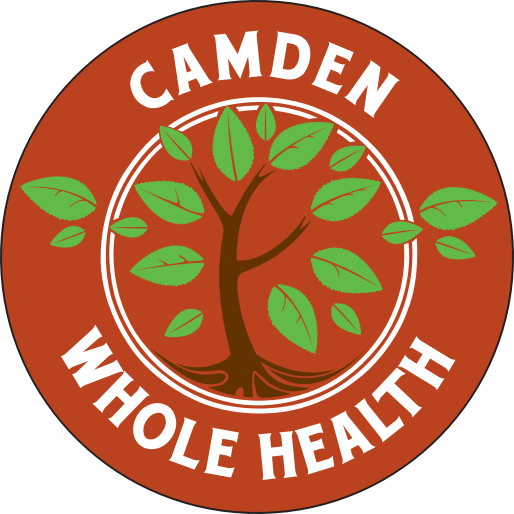Nutritional And Dietary Therapies
Nutritional deficiencies can not only reduce one’s capacity for optimal health, but also cause disease. For example, a deficiency of Vitamin D can cause osteomalacia, a disease of the bones, whereas Vitamin C deficiency can cause scurvy, a disease predominately of the skin. But vitamins and nutrients affect more than just one part of the body, and even mild deficiencies can cause suboptimal function in multiple areas of the body. Sometimes nutrient deficiencies arise from poor dietary habits, but more often there are other predisposing factors, for example, the use of some medications can cause certain vitamin and mineral deficiencies, and natural processes like childbirth and menstruation can promote temporary nutritional deficiencies. When situations such as this occur, nutritional supplements and dietary recommendations can be advised to correct such imbalances.
Nutritional and Dietary Therapies Practitioner(s):
Chinese Medicine
Chinese Medicine is a collection of therapeutic modalities traditionally used in China that includes acupuncture, Chinese herbal medicine, Qi Gong, Tui na, and T’ai Chi Chu’an to improve health and well-being.
Chinese Medicine Practitioner(s):
Detoxification
Detoxification includes any number of modalities designed to help support the body’s elimination pathways, including chelation therapy, colon hydrotherapy, detoxification diets, herbal detoxification, massage, sauna, and more. The major organs of elimination in the body include the intestinal tract, the liver and gallbladder, the kidneys, and the skin. Detoxification is not always physical but may include supporting the release of “toxic” thoughts and feelings through counseling and other modalities.
Detoxification Practitioner(s):
Naturopathic Medicine
Naturopathic medicine is a distinct system of primary health care -an art, science, philosophy and practice of diagnosis, treatment and prevention of illness. Naturopathic medicine is distinguished by the principles which underlie and determine its practice. These principles are based upon the objective observation of the nature of health and disease, and are continually reexamined in the light of scientific advances.
Methods used are consistent with these principles and are chosen upon the basis of patient individuality. Naturopathic doctors are trained as primary health care providers whose diverse techniques include modern and traditional, scientific and empirical methods. The following principles are the foundation for the practice of naturopathic medicine:
Principles:
The Healing Power of Nature (Vis Medicatrix Naturae)
The healing power of nature is the inherent self -organizing and healing process of living systems which establishes, maintains and restores health. Naturopathic medicine recognizes this healing process to be ordered and intelligent. It is the naturopathic physician’s role to support, facilitate and augment this process by identifying and removing obstacles to health and recovery, and by supporting the creation of a healthy internal and external environment.
Identify and Treat the Causes (Tolle Causam)
Illness does not occur without cause. Causes may originate in many areas. Underlying causes of illness and disease must be identified and removed before complete recovery can occur. Symptoms can be expressions of the body’s attempt to defend itself, to adapt and recover, to heal itself, or may be results of the causes of disease. The naturopathic physician seeks to treat the causes of disease, rather than to merely eliminate or suppress symptoms.
First Do No Harm (Primum Non Nocere)
Naturopathic physicians follow three precepts to avoid harming the patient:
- Naturopathic physicians utilize methods and medicinal substances which minimize the risk of harmful effects, and apply the least possible force or intervention necessary to diagnose illness and restore health.
- Whenever possible the suppression of symptoms is avoided as suppression generally interferes with the healing process.
- Naturopathic physicians respect and work with the vis medicatrix naturae in diagnosis, treatment and counseling, for if this self -healing process is not respected the patient may be harmed.
Doctor as Teacher (Docere)
The original meaning of the word “doctor” is teacher. A principal objective of naturopathic medicine is to educate the patient and emphasize self-responsibility for health. Naturopathic physicians also recognize and employ the therapeutic potential of the doctor-patient relationship.
Treat the Whole Person
Health and disease result from a complex of physical, mental, emotional, genetic, environmental, social and other factors. Since total health also includes spiritual health, naturopathic physicians encourage individuals to pursue their personal spiritual development. Naturopathic medicine recognizes the harmonious functioning of all aspects of the individual as being essential to health. The multifactorial nature of health and disease requires a personalized and comprehensive approach to diagnosis and treatment. Naturopathic physicians treat the whole person, taking all of these factors into account.
Prevention
Naturopathic medical colleges emphasize the study of health as well as disease. The prevention of disease and the attainment of optimal health in patients are primary objectives of naturopathic medicine. In practice, these objectives are accomplished through education and the promotion of healthy ways of living. Naturopathic physicians assess risk factors, heredity and susceptibility to disease, and make appropriate interventions in partnership with their patients to prevent illness. Naturopathic medicine asserts that one cannot be healthy in an unhealthy environment and is committed to the creation of a world in which humanity may thrive.
Naturopathic Medicine Practitioner(s):
ASSOCIATIONS





Error: Contact form not found.

